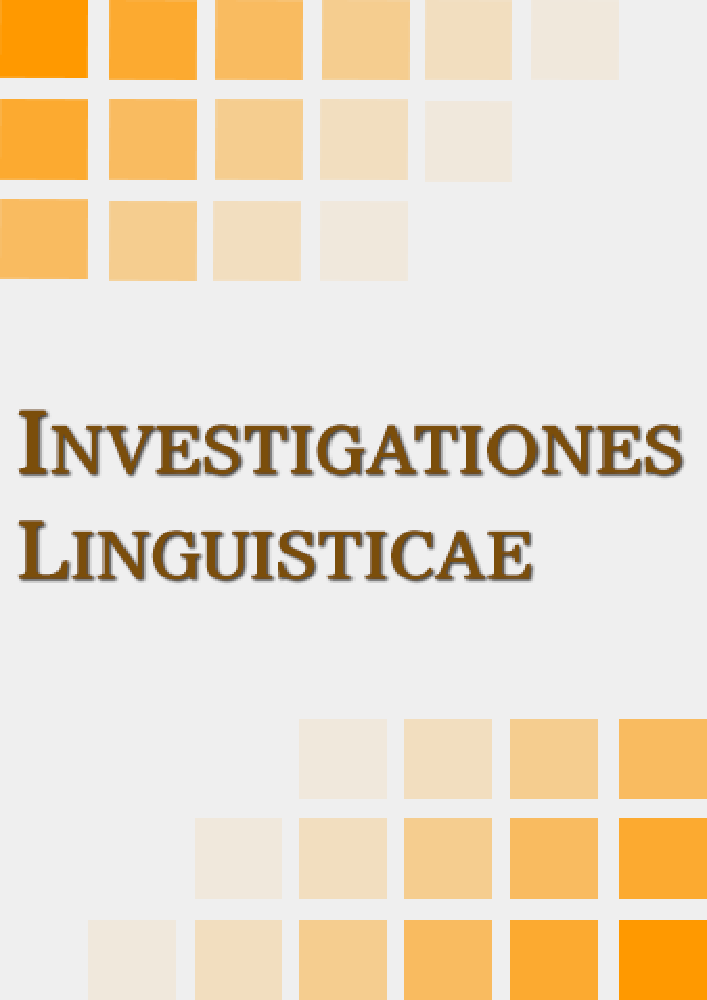Abstrakt
In this article I refer to the issue of comparative research methodology and methods of philosophical argumentation systems with different cultural areas. In relation to that shown by A. Tarski logical consequence operator, will establish criteria for the comparative analysis of systems inferences different cultural areas of the property based on the operator monotonic consequences.Bibliografia
Antonelli, G.A. 1997. Defeasible inheritance over cyclic networks. Artificial Intelligence. Vol. 92 (1), s. 1–23.
Antonelli, G.A., 1999. A directly cautious theory of defeasible consequence for default logic via the notion of general extension. Artificial Intelligence, 109 (1–2), s. 71–109.
Antonelli, G.A., 2005. Grounded Consequence for Defeasible Logic. Cambridge. Cambridge University Press.
Chellas, B. 1980. Modal Logic: an introduction. Cambridge. Cambridge University Press.
Daye, D.D. 1975. Remarks on Early Buddhist Proto - Formalism (Logic) and Mr. Tachikawa's Translation of the Nyayapravesa. Journal of Indian Philosophy 3, s. 383 - 398.
Daye, D. D. 1977. Metalogical incompatibilittes in the formal description of buddhist logic (nyaya). Notre Dame Journal of Formal Logic. Vol. XVIII, Number 2.
Gabbay, D. M. 1985. Theoretical foundations for nonmonotonic reasoning in expert systems. W: K. Apt (ed.), Logics and Models of Concurrent Systems, Berlin and New York. Springer Verlag, s. 439–459.
Gabbay, D., Hogger, C. and Robinson, J., (eds.). 1994. Handbook of Logic in Artificial Intelligence and Logic Programming. Vol. 3, Oxford and New York. Oxford University Press.
Ginsberg, M. (ed.).1987. Readings in Nonmonotonic Reasoning. Los Altos, CA: Morgan Kauffman.
Harbsmeier, Ch.1998. Language and Logic. Science and civilisation in China. Vol. 7. CUP.
Hughes, G. and Cresswell, M. 1996. A New Introduction to Modal Logic. London. Routledge.
Horty, J.F. 1994. Some direct theories of nonmonotonic inheritance. In Gabbay et al. (1994), s. 111–187.
Horty, J.F., 2002. Skepticism and floating conclusions. Artificial Intelligence Journal, 135, s. 55–72.
Kautz, H. and Selman, B. 1991. Hard problems for simple default logic, Artificial Intelligence Journal, 49, s. 243–279
Kripke, S. 1975. Outline of a theory of truth, The Journal of Philosophy, 72, s. 690–716.
Lifschitz, V. 1993. Circumscription, in Gabbay, Hogger, and Robinson (eds.) 1994.
Makinson, D. 2008. Od logiki klasycznej do niemonotonicznej. Wydawnictwo Naukowe Uniwersytetu im. M. Kopernika w Toruniu.
Matilal, B.K. 1971. Epistemology, Logic and Grammar in Indian Philosophical Analysi,. Mouton, the Hage. Paris.
McCarthy, J. 1980. Circumscription — A Form of Non-Monotonic Reasoning. Artificial Inteligence, 13, s. 27–39.
McCarthy, 1986. “Applications of Circumscription to Formalizing Common Sense Knowledge”. Artificial Inteligence, 28, s. 89–116.
McCarthy, 1990. Formalization of common sense. Papers by John McCarthy edited by V. Lifschitz, Ablex.
Oetke, C. 1996. Ancient indian logic as a theory of non-monotonic reasoning. ,,Jurnal of Indian Philosphy” nr. 24 (5), s. 447-539 (1996).
Radhakirishna, Ch. 1948. Indian Philosophy, London. George Allen and Unwin Ldt.
Schayer, S. 1932. Studien zur indischen Logik. I. Der indische und der aristotelische Syllogismus. Bulletin International de l'Academie Polonaise des Sciences et de Lettres.
Sikora, S 2012. Logika Dignāgi – problemy interpretacji (Dignāga‘s Logic –problems of interpretation). Investigationes Linguisticae. Vol. XXV, 2012, s. 127-156.
Sikora, S. 2012, Nyāya Sữtra jako zmiana epistemiczna ( The Nyāya Sữtra as epistemic change) Investigationes Linguisticae. Vol. XXVI, 2012, s. 82-107.
Stalnaker, R. 1994. Nonmonotonic consequence relation, Fundamenta Informaticae, 21, s. 7–21.
Taber, J. 2004. Is Indian Logic Nonmonotonic? Philosophy East and West, Vol. 54, Number 2, April 2004, s. 143-170.
Tarski, A. 1956. Logic, semantic, metamathematic, Papers from 1929 – 1938. OUP. DOI: 10.1353/pew.20.
